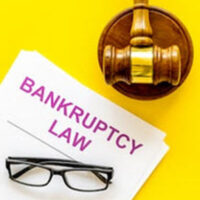Cosigners And Bankruptcy In Chapter 7: What You Should Know

Many debtors who file for Chapter 7 bankruptcy have some debts that are dischargeable but have a cosigner. For example, you might have obtained a motor vehicle loan with help from a co-signer, or you might have obtained a personal loan from a bank with assistance from a co-signer. Co-signers or guarantors are parties who become responsible for your debts if you do not pay them. In most situations, a debtor will need to have a co-signer or a guarantor because they are ineligible for a loan or will not be approved for a credit application on their own. In these circumstances, they need a person with a stronger credit history to be a co-signer or guarantor. Co-signers and guarantors are distinct from one another: co-signers are responsible for every payment just as the debtor is, while a guarantor will typically only be pursued by a creditor when the borrower cannot pay.
For bankruptcy purposes, if you have a co-signer or a guarantor, what do you need to know about how their responsibility will be handled in your bankruptcy case?
Co-Signers Will Still Be Liable or Responsible for Debt
Most significantly, you need to know that the responsibility of a co-signer or guarantor will not be eradicated or erased if you have the debt discharged. For example, if you apply for a personal loan from a bank and are approved because you have a cosigner, you might seek to have the debt you owe from that loan discharged. You might owe, for example, $20,000. While that debt certainly may be dischargeable in a bankruptcy case, and you may be able to have your responsibility for paying that debt erased by filing for bankruptcy and receiving a discharge, the co-signer will still be responsible.
Once a debtor receives a discharge on a debt with a co-signer or guarantor, your responsibility to pay the date is eliminated, but the creditor can come after the co-signer or guarantor for the amount owed. To be clear, having a debt with a co-signer or guarantor discharged in your bankruptcy case will not eliminate the responsibility of the co-signer or guarantor.
You Can Take Steps to Eliminate the Co-Signer’s Responsibility
If you do not want to leave a co-signer or guarantor in a difficult position of owing the debt even though it has been eliminated for you, it is usually possible to take one of two steps.
First, you can do something called reaffirming the debt. If you reaffirm the debt, you agree to continue being responsible for the debt after the bankruptcy case. Or, if you are able to do so, you can pay off the debt for the co-signer after you receive the bankruptcy discharge. You may need to liquidate an exempt asset in order to do this, or you may need to reach an agreement with the creditor.
Contact a Bankruptcy Attorney in West Palm Beach
If you have questions about co-signers and guarantors in Chapter 7 bankruptcy, one of our experienced lawyers can help you. Do not hesitate to contact a West Palm Beach Chapter 7 bankruptcy attorney at Kelley Kaplan & Eller for assistance.
Source:
law.cornell.edu/uscode/text/11



